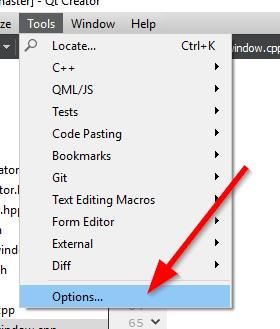

Use the close() method to close the port and cancel the I/O operations. Note: The serial port is always opened with exclusive access (that is, no other process or thread can access an already opened serial port). You can pass an object of the helper class as an argument to the setPort() or setPortName() methods to assign the desired serial device.Īfter setting the port, you can open it in read-only (r/o), write-only (w/o), or read-write (r/w) mode using the open() method. This is useful to obtain the correct name of the serial port you want to use.

You can get information about the available serial ports using the QSerialPortInfo helper class, which allows an enumeration of all the serial ports in the system. Provides functions to access serial ports. SetPort(const QSerialPortInfo & serialPortInfo) SetBaudRate(qint32 baudRate, Directions directions = AllDirections) QSerialPort(const QSerialPortInfo & serialPortInfo, QObject * parent = nullptr)īaudRate(Directions directions = AllDirections) constĬlear(Directions directions = AllDirections)

If you have any problems with the registration process or your account login, please contact us.QSerialPort(const QString & name, QObject * parent = nullptr) Registration is fast, simple and absolutely free so please, join our community today! By joining our free community you will have access to post topics, communicate privately with other members (PM), respond to polls, upload content and access many other special features. You are currently viewing our boards as a guest which gives you limited access to view most discussions and access our other features. If you are looking for information about Qt related issue - register and post your question. Over 90 percent of questions asked here gets answered. Qt Centre is a community site devoted to programming in C++ using the Qt framework. Select the forum that you want to visit from the selection below. Before you can post: click the register link above to proceed.


 0 kommentar(er)
0 kommentar(er)
